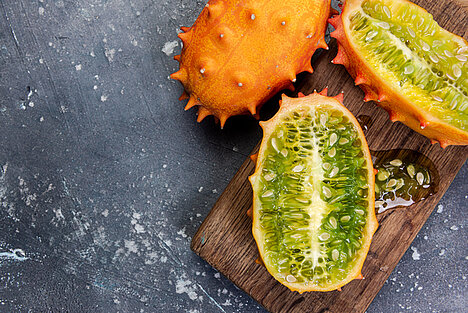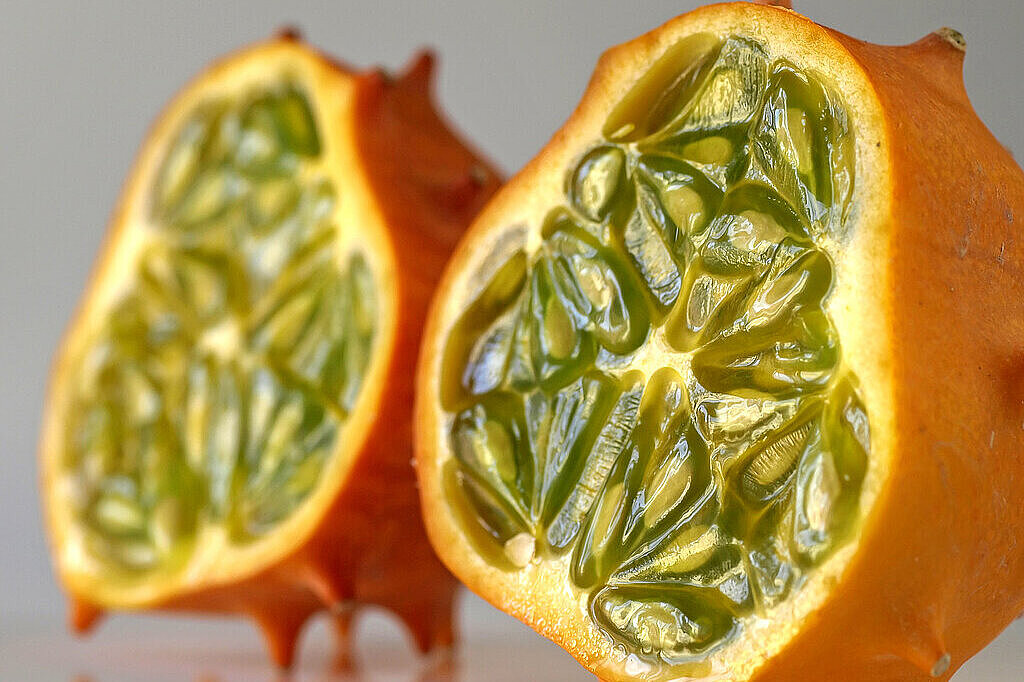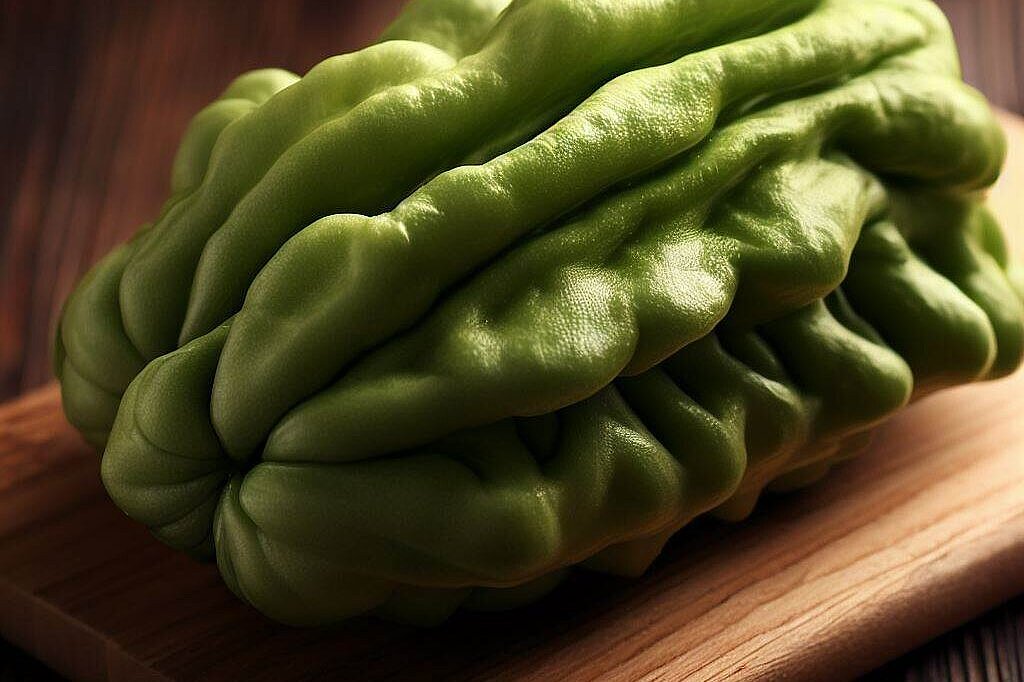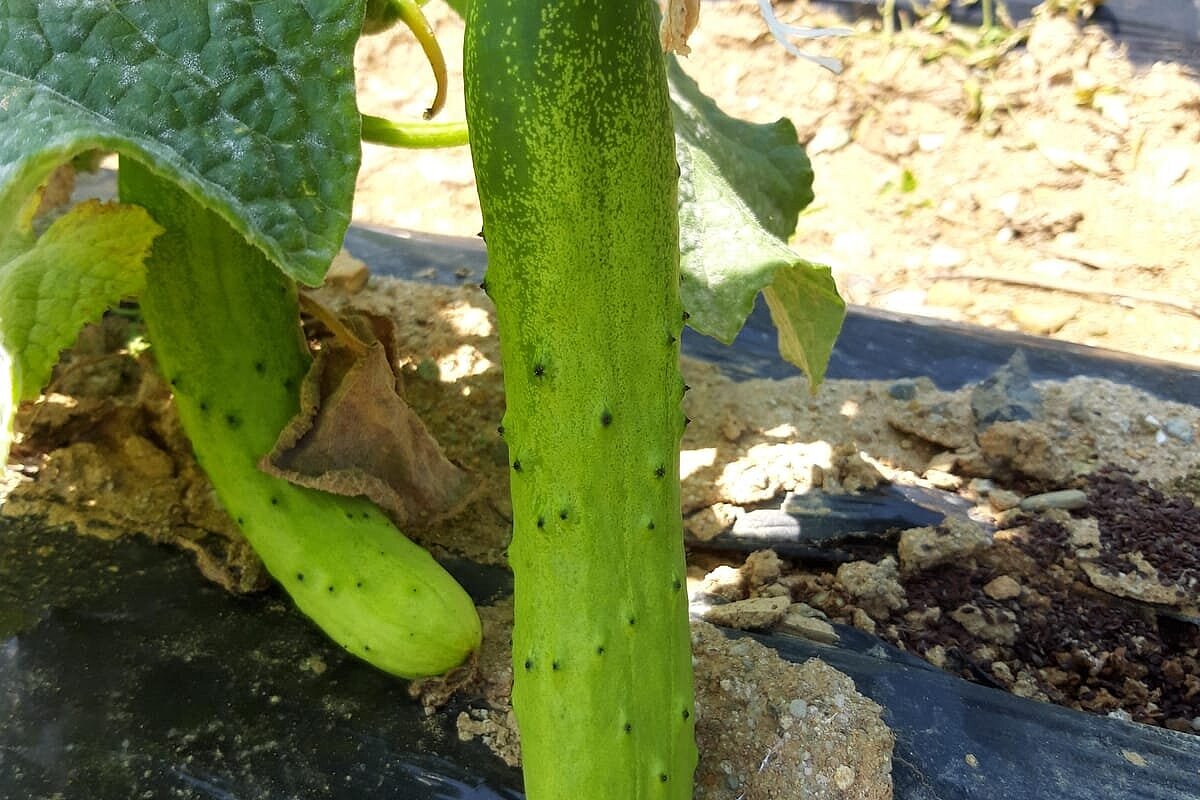Horned cucumber

The horned cucumber, also known as kiwano or horned melon, is a plant species from the gourd family. It originates from Africa and forms spiky fruits with green skin and yellow flesh1. The fruits are rich in vitamin C, potassium and iron and have a refreshing taste2.
But are they also suitable for dogs? In this article, you can find out more about the advantages and disadvantages of this exotic fruit for your four-legged friend.
Advantages of the horned cucumber for dogs
The horned cucumber has a number of benefits for dogs:
- It is low in calories and can serve as a healthy snack between meals.
- It contains a lot of water and can cover your dog's fluid requirements.
- It provides important nutrients such as vitamin C, potassium and iron, which can support the dog's immune system, metabolism and blood formation2.
- It has a cooling effect and can provide relief for dogs in hot temperatures.
Disadvantages of the horned cucumber for dogs
However, the horned cucumber also has some disadvantages for dogs:
- It contains cucurbitacins, a group of bitter compounds that can be toxic in high doses. Cucurbitacins can cause vomiting, diarrhea, salivation and drowsiness in dogs. In the worst cases, they can even lead to shock and death3.
- The fruit is difficult for some dogs to digest. The raw peel and pulp can cause stomach and intestinal problems in sensitive or small dogs. It is therefore recommended to remove the skin or puree the fruit4.
- It is not native to our latitudes and has to be imported. This means a higher ecological footprint than with native fruit varieties.
The horned cucumber is an interesting fruit with lots of nutrients and a refreshing taste. However, it can also be dangerous for dogs. If you want to give your dog a horned cucumber, you should keep the following tips in mind:
- Only give small amounts as a snack or reward.
- Pay attention to the quality of the fruit and avoid overripe or bitter fruit.
- Remove the skin or puree the flesh before feeding.
- Observe your dog after eating for possible signs of intolerance or poisoning.
If you notice any signs of hypersensitivity or poisoning in your dog, you should see your vet immediately. We are not a substitute for a vet, but we try to be as accurate as possible. Every dog reacts differently and we recommend you get a second opinion or consult your vet if in doubt.
Stay healthy and take good care of your four-legged friend!😊
Similar to Horned cucumber
Kiwano has a number of positive properties that make it a healthy food supplement for dogs. Firstly, it contains a lot of water (about 90 percent) and fiber, which is good for digestion. Secondly,...
Bitter melon contains many ingredients that can have a positive effect on the metabolism. These include, among others Bitter substances: They stimulate digestion and can curb the...
Chayote (Sechium edule) is a climbing plant from the gourd family and originally comes from Mexico. Its edible fruits are light green, pear-shaped and consist of a single large seed with edible skin...
Luffa is a plant species from the gourd family. The fruits of the loofah plant are elongated, have a hard skin and contain many seeds. When the fruits are ripe, they are dried and peeled. The inside...



